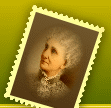Science and Health with Key to The Scriptures
CHAPTER II — ATONEMENT AND EUCHARIST
(cont.)

PAGE 46
 |
|
| 1 |
derstand their
Master's triumph, did not perform many wonderful works, until they saw him
after his crucifixion |
| 3 |
and learned that
he had not died. This convinced them of the truthfulness of all that he had
taught. |
 |
|
 |
Spiritual
interpretation |
|
In the walk to
Emmaus, Jesus was known to his friends |
| 6 |
by the words,
which made their hearts burn within them, and by the breaking of bread. The
divine Spirit, which identified Jesus thus centuries |
| 9 |
ago, has spoken
through the inspired Word and will speak through it in every age and clime. It
is revealed to the receptive heart, and is again seen casting out evil and
|
| 12 |
healing the
sick. |
 |
|
 |
Corporeality
and Spirit |
|
The Master said
plainly that physique was not Spirit, and after his resurrection he proved to
the physical senses |
| 15 |
that his body
was not changed until he himself ascended, — or, in other words, rose even
higher in the understanding of Spirit, God. To convince |
| 18 |
Thomas of this,
Jesus caused him to examine the nail- prints and the spear-wound. |
 |
|
 |
Spiritual
ascension |
|
Jesus' unchanged
physical condition after what seemed |
| 21 |
to be death was
followed by his exaltation above all ma- terial conditions; and this exaltation
explained his ascension, and revealed unmistakably a |
| 24 |
probationary and
progressive state beyond the grave. Jesus was "the way;" that is, he marked the
way for all men. In his final demonstration, called the ascen- |
| 27 |
sion, which
closed the earthly record of Jesus, he rose above the physical knowledge of his
disciples, and the material senses saw him no more. |
 |
|
 |
Pentecostal
power |
| 30 |
His students
then received the Holy Ghost. By this is meant, that by all they had witnessed
and suffered, they were roused to an enlarged understanding of divine Sci- |
 |
|
PAGE 47
 |
|
| 1 |
ence, even to
the spiritual interpretation and discernment of Jesus' teachings and
demonstrations, which gave them |
| 3 |
a faint
conception of the Life which is God. They no longer measured man by material
sense. After gaining the true idea of their glorified Master, |
| 6 |
they became
better healers, leaning no longer on matter, but on the divine Principle of
their work. The influx of light was sudden. It was sometimes an overwhelming
|
| 9 |
power as on the
Day of Pentecost. |
 |
|
 |
The traitor's
conspiracy |
|
Judas conspired
against Jesus. The world's ingratitude and hatred towards that just man
effected his betrayal. |
| 12 |
The traitor's
price was thirty pieces of silver and the smiles of the Pharisees. He chose his
time, when the people were in doubt concerning Jesus'. |
| 15 |
teachings |
 |
|
|
A period was
approaching which would reveal the in- finite distance between Judas and his
Master. Judas |
| 18 |
Iscariot knew
this. He knew that the great goodness of that Master placed a gulf between
Jesus and his betrayer, and this spiritual distance inflamed Judas' envy. The
|
| 21 |
greed for gold
strengthened his ingratitude, and for a time quieted his remorse. He knew that
the world generally loves a lie better than Truth; and so he plotted the be-
|
| 24 |
trayal of Jesus
in order to raise himself in popular esti- mation. His dark plot fell to the
ground, and the traitor fell with it. |
 |
|
| 27 |
The disciples'
desertion of their Master in his last earthly struggle was punished; each one
came to a violent death except St. John, of whose death we have no |
| 30 |
record. |
 |
|
 |
Gethsemane
glorified |
|
During his night
of gloom and glory in the garden, Jesus realized the utter error of a belief in
any possi- |
 |
|
PAGE 48
 |
|
| 1 |
ble material
intelligence. The pangs of neglect and the staves of bigoted ignorance smote
him sorely. His stu- |
| 3 |
dents slept. He
said unto them: "Could Ye not watch with me one hour?" Could they not watch
with him who, waiting and struggling in voice- |
| 6 |
less agony, held
uncomplaining guard over a world? There was no response to that human yearning,
and so Jesus turned forever away from earth to heaven, from |
| 9 |
sense to
Soul. |
 |
|
|
Remembering the
sweat of agony which fell in holy benediction on the grass of Gethsemane, shall
the hum- |
| 12 |
blest or
mightiest disciple murmur when he drinks from the same cup, and think, or even
wish, to escape the exalting ordeal of sin's revenge on its destroyer? Truth
and |
| 15 |
Love bestow few
palms until the consummation of a life-work. |
 |
|
 |
Defensive
weapons |
|
Judas had the
world's weapons. Jesus had not one |
| 18 |
of them, and
chose not the world's means of defence. "He opened not his mouth." The great
demonstrator of Truth and Love was silent before |
| 21 |
envy and hate.
Peter would have smitten the enemies of his Master, but Jesus forbade him, thus
rebuking resentment or animal courage. He said: "Put up thy |
| 24 |
sword." |
 |
|
 |
Pilate's
question |
|
Pale in the
presence of his own momentous question, "What is Truth," Pilate was drawn into
acquiescence |
| 27 |
with the demands
of Jesus' enemies. Pilate was ignorant of the consequences of his awful
decision against human rights and divine Love, knowing |
| 30 |
not that he was
hastening the final demonstration of what life is and of what the true
knowledge of God can do for man. |
 |
|
PAGE 49
 |
|
| 1 |
The women at the
cross could have answered Pilate's question. They knew what had inspired their
devotion, |
| 3 |
winged their
faith, opened the eyes of their understanding, healed the sick, cast out evil,
and caused the disciples to say to their Master: "Even the devils are subject
|
| 6 |
unto us through
thy name." |
 |
|
 |
Students'
ingratitude |
|
Where were the
seventy whom Jesus sent forth? Were all conspirators save eleven? Had they
forgotten the |
| 9 |
great exponent
of God? Had they so soon lost sight of his mighty works, his toils, privations,
sacrifices, his divine patience, sublime courage, and unre- |
| 12 |
quited
affection? O, why did they not gratify his last human yearning with one sign of
fidelity? |
 |
|
 |
Heaven's
sentinel |
|
The meek
demonstrator of good, the highest instruc- |
| 15 |
tor and friend
of man, met his earthly fate alone with God. No human eye was there to pity, no
arm to save. Forsaken by all whom he had |
| 18 |
blessed, this
faithful sentinel of God at the highest post of power, charged with the
grandest trust of heaven, was ready to be transformed by the renewing |
| 21 |
of the infinite
Spirit. He was to prove that the Christ is not subject to material conditions,
but is above the reach of human wrath, and is able, through Truth, |
| 24 |
Life, and Love,
to triumph over sin, sickness, death, and the grave. |
 |
|
 |
Cruel
contumely |
|
The priests and
rabbis, before whom he had meekly |
| 27 |
walked, and
those to whom he had given the highest proofs of divine power, mocked him on
the cross, saying derisively, "He saved others; |
| 30 |
himself he
cannot save." These scoffers, who turned "aside the right of a man before the
face of the Most High," esteemed Jesus as "stricken, smitten of God." |
 |
|
PAGE 50
 |
|
| 1 |
"He is brought
as a lamb to the slaughter, and as a sheep before her shearers is dumb, so he
openeth not his mouth." |
| 3 |
"Who shall
declare his generation?" Who shall decide what truth and love are? |
 |
|
 |
A cry of
despair |
|
The last supreme
moment of mockery, desertion, tor- |
| 6 |
ture, added to
an overwhelming sense of the magnitude of his work, wrung from Jesus' lips the
awful cry, "My God, why hast Thou forsaken me?" |
| 9 |
This despairing
appeal, if made to a human parent, would impugn the justice and love of a
father who could with- hold a clear token of his presence to sustain and bless
so |
| 12 |
faithful a son.
The appeal of Jesus was made both to his divine Principle, the God who is Love,
and to himself, Love's pure idea. Had Life, Truth, and Love forsaken |
| 15 |
him in his
highest demonstration? This was a startling question. No! They must abide in
him and he in them, or that hour would be shorn of its mighty blessing for the
|
| 18 |
human race. |
 |
|
 |
Divine Science
misunderstood |
|
If his full
recognition of eternal Life had for a moment given way before the evidence of
the bodily senses, |
| 21 |
what would his
accusers have said? Even what they did say, — that Jesus' teachings were
false, and that all evidence of their cor- |
| 24 |
rectness was
destroyed by his death. But this saying could not make it so. |
 |
|
 |
The real
pillory |
|
The burden of
that hour was terrible beyond human |
| 27 |
conception. The
distrust of mortal minds, disbelieving the purpose of his mission, was a
million times sharper than the thorns which pierced |
| 30 |
his flesh. The
real cross, which Jesus bore up the hill of grief, was the world's hatred of
Truth and Love. Not the spear nor the material cross wrung from his
faithful |
 |
|
PAGE 51
 |
|
| 1 |
lips the
plaintive cry, "Eloi, Eloi, lama sabachthani?" It was the possible loss
of something more important than |
| 3 |
human life which
moved him, — the possible misapprehension of the sublimest influence of
his career. This dread added the drop of gall to his cup. |
 |
|
 |
Life-power
indestructible |
| 6 |
Jesus could have
withdrawn himself from his enemies. He had power to lay down a human sense of
life for his spiritual identity in the likeness of the divine; |
| 9 |
but he allowed
men to attempt the destruction of the mortal body in order that he might
furnish the proof of immortal life. Nothing could kill this Life |
| 12 |
of man. Jesus
could give his temporal life into his enemies' hands; but when his
earth-mission was accomplished, his spiritual life, indestructible and eternal,
|
| 15 |
was found
forever the same. He knew that matter had no life and that real Life is God;
therefore he could no more be separated from his spiritual Life than God could
|
| 18 |
be
extinguished. |
 |
|
 |
Example for
our salvation |
|
His consummate
example was for the salvation of us all, but only through doing the works which
he did and |
|
21 taught others
to do. His purpose in healing was not alone to restore health, but to
demonstrate his divine Principle. He was inspired by God, by |
|
24 Truth and
Love, in all that he said and did. The motives of his persecutors were pride,
envy, cruelty, and vengeance, inflicted on the physical Jesus, but aimed at the
divine Prin- |
|
27 ciple, Love,
which rebuked their sensuality. |
 |
|
|
Jesus was
unselfish. His spirituality separated him from sensuousness, and caused the
selfish materialist |
| 30 |
to hate him; but
it was this spirituality which enabled Jesus to heal the sick, cast out evil,
and raise the dead. |
 |
|
PAGE 52
 |
Master's
business |
| 1 |
From early
boyhood he was about his "Father's business." His pursuits lay far apart from
theirs. His mas- |
| 3 |
ter was Spirit;
their master was matter. He served God; they served mammon. His affections were
pure; theirs were carnal. His senses drank in |
| 6 |
the spiritual
evidence of health, holiness, and life; their senses testified oppositely, and
absorbed the material evidence of sin, sickness, and death. |
 |
|
 |
Purity's
rebuke |
| 9 |
Their
imperfections and impurity felt the ever-present rebuke of his perfection and
purity. Hence the world's hatred of the just and perfect Jesus, and the |
| 12 |
prophet's
foresight of the reception error would give him. "Despised and rejected of
men," was Isaiah's graphic word concerning the coming Prince of Peace. |
| 15 |
Herod and Pilate
laid aside old feuds in order to unite in putting to shame and death the best
man that ever trod the globe. To-day, as of old, error and evil again |
| 18 |
make common
cause against the exponents of truth. |
 |
|
 |
Saviour's
prediction |
|
The "man of
sorrows" best understood the nothing-ness of material life and intelligence and
the mighty ac- |
| 21 |
tuality of
all-inclusive God, good. These were the two cardinal points of Mind-healing, or
Christian Science, which armed him with Love. The high- |
| 24 |
est earthly
representative of God, speaking of human ability to reflect divine power,
prophetically said to his disciples, speaking not for their day only but for
all time: |
| 27 |
"He that
believeth on me, the works that I do shall he do also;" and "These signs shall
follow them that believe." |
 |
|
 |
Defamitory
accusations |
|
The accusations
of the Pharisees were as self-contra- |
| 30 |
dictory as their
religion. The bigot, the debauchee, the hypocrite, called Jesus a glutton and a
wine-bibber. They said: "He casteth out devils |
 |
|
PAGE 53
 |
|
| 1 |
through
Beelzebub," and is the "friend of publicans and sinners." The latter accusation
was true, but not in their |
| 3 |
meaning. Jesus
was no ascetic. He did not fast as did the Baptist's disciples; yet there never
lived a man so far removed from appetites and passions as the Nazarene. |
| 6 |
He rebuked
sinners pointedly and unflinchingly, because he was their friend; hence the cup
he drank. |
 |
|
 |
Reputation and
character |
|
The reputation
of Jesus was the very opposite of his |
| 9 |
character. Why?
Because the divine Principle and practice of Jesus were misunderstood. He was
at work in divine Science. His words |
| 12 |
and works were
unknown to the world because above and contrary to the world's religious sense.
Mortals believed in God as humanly mighty, rather than as divine, |
| 15 |
infinite
Love. |
 |
|
 |
Inspiring
discontent |
|
The world could
not interpret aright the discomfort which Jesus inspired and the spiritual
blessings which |
| 18 |
might flow from
such discomfort. Science shows the cause of the shock so often produced by the
truth, — namely, that this shock arises from |
| 21 |
the great
distance between the individual and Truth. Like Peter, we should weep over the
warning, instead of denying the truth or mocking the lifelong sacrifice which
|
| 24 |
goodness makes
for the destruction of evil. |
 |
|
 |
Bearing our
sins |
|
Jesus bore our
sins in his body. He knew the mortal errors which constitute the material body,
and |
| 27 |
could destroy
those errors; but at the time when Jesus felt our infirmities, he had not
conquered all the beliefs of the flesh or his sense of ma- |
| 30 |
terial life, nor
had he risen to his final demonstration of spiritual power. |
 |
|
|
Had he shared the
sinful beliefs of others, he would |
 |
|
PAGE 54
 |
|
| 1 |
have been less
sensitive to those beliefs. Through the magnitude of his human life, he
demonstrated the divine |
| 3 |
Life. Out of the
amplitude of his pure affection, he defined Love. With the affluence of Truth,
he vanquished error. The world acknowledged not his righteousness, |
| 6 |
seeing it not;
but earth received the harmony his glorified example introduced. |
 |
|
 |
Inspiration of
sacrifice |
|
Who is ready to
follow his teaching and example? All |
| 9 |
must sooner or
later plant themselves in Christ, the true idea of God. That he might liberally
pour his dear-bought treasures into empty or sin- |
| 12 |
filled human
storehouses, was the inspiration of Jesus' intense human sacrifice. In witness
of his divine commission, he presented the proof that Life, Truth, and |
| 15 |
Love heal the
sick and the sinning, and triumph over death through Mind, not matter. This was
the highest proof he could have offered of divine Love. His hearers |
| 18 |
understood
neither his words nor his works. They would not accept his meek interpretation
of life nor follow his example. |
 |
|
 |
Spiritual
friendship |
| 21 |
His earthly cup
of bitterness was drained to the dregs. There adhered to him only a few
unpretentious friends, whose religion was something more |
| 24 |
than a name. It
was so vital, that it enabled them to understand the Nazarene and to share the
glory of eternal life. He said that those who fol- |
| 27 |
lowed him should
drink of his cup, and history has confirmed the prediction. |
 |
|
 |
Injustice to
the Saviour |
|
If that Godlike
and glorified man were physically on |
| 30 |
earth to-day,
would not some, who now profess to love him, reject him? Would they not deny
him even the rights of humanity, if he enter- |
 |
|
PAGE 55
 |
|
| 1 |
tained any other
sense of being and religion than theirs? The advancing century, from a deadened
sense of the |
| 3 |
invisible God,
to-day subjects to unchristian comment and usage the idea of Christian healing
enjoined by Jesus; but this does not affect the invincible facts. |
 |
|
| 6 |
Perhaps the
early Christian era did Jesus no more injustice than the later centuries have
bestowed upon the healing Christ and spiritual idea of being. Now |
| 9 |
that the gospel
of healing is again preached by the wayside, does not the pulpit sometimes
scorn it? But that curative mission, which presents the Saviour in a |
| 12 |
clearer light
than mere words can possibly do, cannot be left out of Christianity, although
it is again ruled out of the synagogue. |
 |
|
| 15 |
Truth's immortal
idea is sweeping down the centuries, gathering beneath its wings the sick and
sinning. My weary hope tries to realize that happy day, when man shall |
| 18 |
recognize the
Science of Christ and love his neighbor as himself, — when he shall
realize God's omnipotence and the healing power of the divine Love in what it
has done |
| 21 |
and is doing for
mankind. The promises will be fulfilled. The time for the reappearing of the
divine healing is throughout all time; and whosoever layeth his earthly |
| 24 |
all on the altar
of divine Science, drinketh of Christ's cup now, and is endued with the spirit
and power of Christian healing. |
 |
|
| 27 |
In the words of
St. John: "He shall give you another Comforter, that he may abide with you
forever." This Comforter I understand to be Divine Science. |
 |
|
 |
|
|
|
|
|
|
|
|
|
|
|
 |
|
«
Previous | Table of
Contents | Next
»
|



















